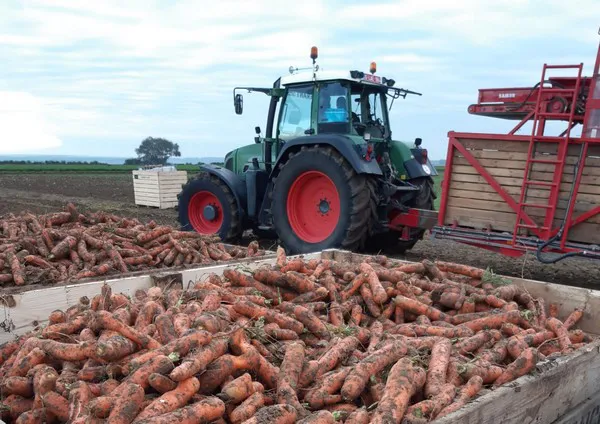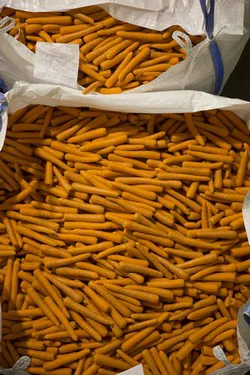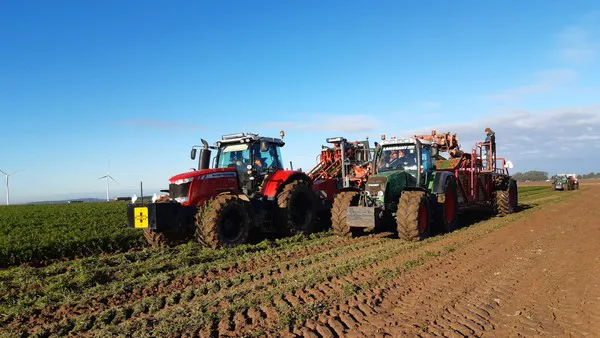“We're currently hard at work storing carrots, celeriac, and white and red cabbage," says Alexander Verduyn of Verduyn, in Belgium. "The carrots didn't grow well. Their yield is, on average, 15% lower than last year. However, the refrigerated product is of excellent quality. We don't know how the storage will go, but storage conditions are good. We have fewer carrots this year. There's also less demand because of the coronavirus pandemic. The hospitality industry has fallen away. Traders want fewer carrots. Demand from the retail sector, fortunately, partly makes up for that."

According to Verduyn, Dutch growers, too, have carrot shortages. France, on the other hand, seems to be better off. "But we'll have to wait and see how the season goes. With this virus, it's far harder to estimate anything. There are few exports at present. It is, however, possible that this will pick up. Only France and the United Kingdom have enough for now. Nevertheless, trade continues, and it isn't quiet. We hope when the hospitality industry reopens, demand will increase."
Winter vegetables Just like all the root vegetables, this year's white cabbage yields are also lower. "The dry weather has left a definite mark. Leeks, on the other hand, are doing well. There are plenty for the time being, and sales are going well. However, even colder weather would benefit winter vegetables. Cold weather stimulates the demand for these products."
Just like all the root vegetables, this year's white cabbage yields are also lower. "The dry weather has left a definite mark. Leeks, on the other hand, are doing well. There are plenty for the time being, and sales are going well. However, even colder weather would benefit winter vegetables. Cold weather stimulates the demand for these products."
"The broccoli and cauliflower season is over. Despite the dry weather, we had good yields. The demand was on par and constant. It was a season with no major ups or downs. Both products had excellent prices too," says Alexander.
A new year
“COVID-19 has had a significant effect on the market. Luckily, things are much better now than during the first lockdown. At the moment, there's still movement. That's because schools and most company canteens are open. Also, many restaurants have started with take-aways and home deliveries."
Christmas is usually quiet for Verduyn. "Most Christmas menus feature venison and slightly less typical winter vegetables. However, the first weeks of the new year are busy for us. People want to shed that extra Christmas weight. They want to eat healthy food. So, they put winter vegetables on their menus," explains Alexander.

Automation
COVID-19 isn't only affecting the market. It also impacts the everyday running of things. "Unfortunately, we have less contact with our clients. We're working from home more. And there aren't any fairs or other events either. Still, we're trying to stay positive. There's always sunshine after the rain." Despite all of this year's challenges, the company continues to develop.
"We're gaining ground in France, and all is going according to plan. We're also automating our packaging department here in Belgium. Within three months, we'll be switching to a new ERP and WMS program. We must keep looking to the future. It's becoming increasingly difficult to find laborers. That's why we must automate," Verdyn concludes.
For more information: Alexander Verduyn
Alexander Verduyn
Verduyn
9 Galge Street
8610, Kortemark, Belgium
Tel: +32 (0) 515 70 056
Email: info@verduyn.be
Website: www.verduyn.be
